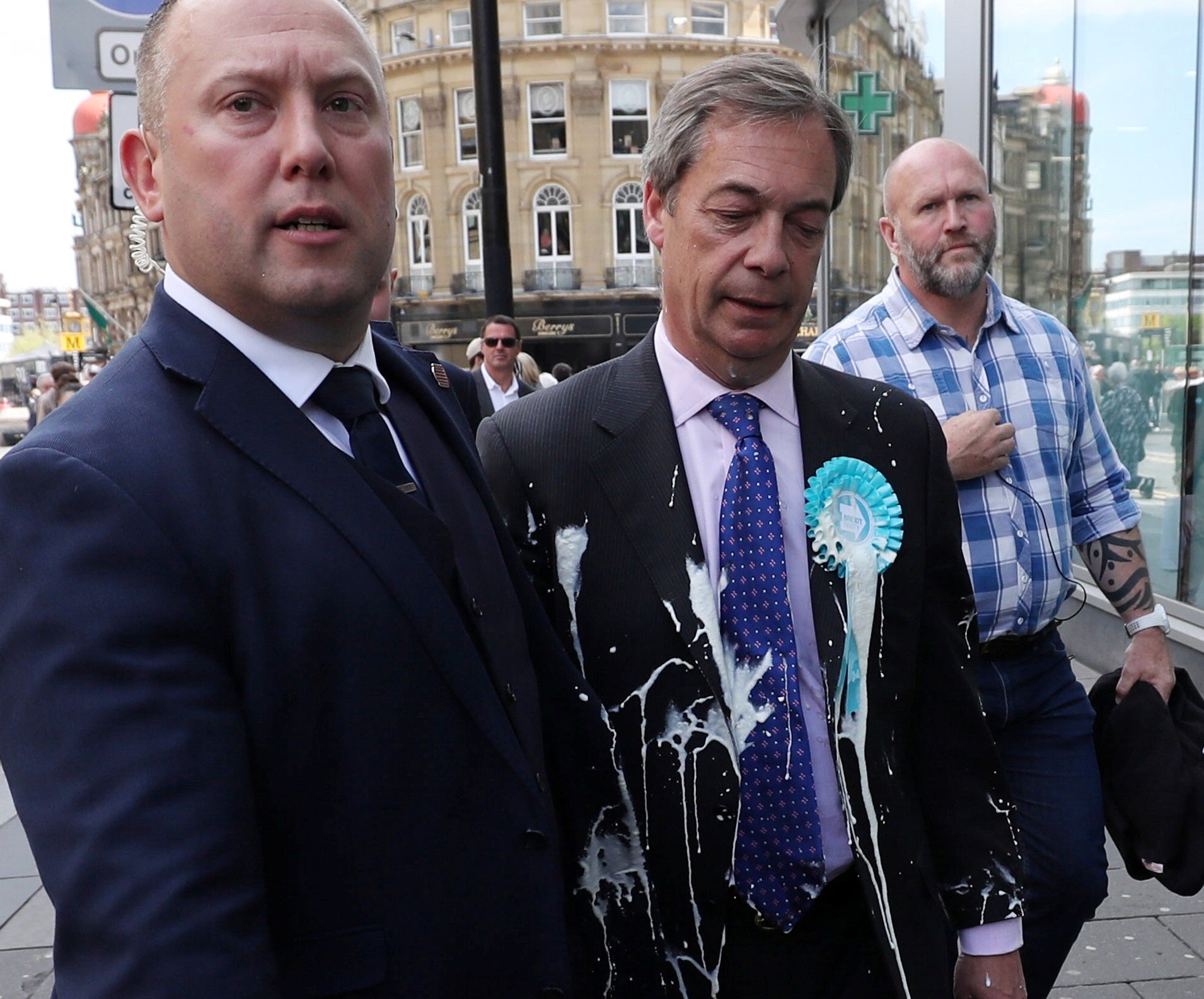Brexit Party: Electoral Commission launches review into donations and will visit headquarters
‘If there’s evidence that the law may have been broken, we will consider that,’ says watchdog following concerns about funding
The election watchdog is to investigate Nigel Farage’s Brexit Party after criticism of its “under-the-counter and underhand” foreign donations.
Officials from the Electoral Commission will demand to see documents at its headquarters on Tuesday, amid a growing controversy over its fundraising methods.
The move comes after the Brexit Party’s chair admitted he did not know whether its PayPal account was taking foreign cash, saying: “I don’t know what currencies people are paying in.”
Gordon Brown led the criticism in a major speech, warning: “Democracy is undermined when we have undeclared, unreported, untraceable payments being made to the Brexit Party.
“We have the potential for underhand and under-the-counter payments being made.”
A commission spokesperson said: “We are attending the Brexit Party’s office tomorrow to conduct a review of the systems it has in place to receive funds, including donations over £500 that have to be from the UK only.
“If there’s evidence that the law may have been broken, we will consider that in line with our enforcement policy.”
The row has blown up because the Brexit Party does not have traditional members, merely a PayPal model that does not demand detailed personal information from donors.

The former Labour prime minister pointed to the ongoing investigations into Leave.EU, Mr Farage’s campaign group during the 2016 referendum, and his key funder Arron Banks.
Last week, it was reported that Mr Banks had allegedly bankrolled his ally’s “lavish lifestyle” to the tune of £450,000 in the year that followed.
“You know the history of this – Leave.EU, Nigel Farage and Arron Banks’ campaign is now under criminal investigation,” Mr Brown said.
“You can pay to this party in Russian roubles, American dollars, Malaysian ringgit and, of course, probably to his disdain, euros as well, to join that Brexit Party.”
And Chris Bryant, a Labour MP, added: “It would be simple for a foreign power or individual to fund [the Brexit Party] by paying hundreds or thousands of £499 in sterling or other currencies as the party does not even verify names. Our democracy is basically up for sale.”

However, it is understood that rules on identification do not apply to sums of less than £500 given to parties, because they are not recognised as official donations.
Gifts of £500 or more must be given by a “permissible donor”, who should either be somebody listed on the UK electoral roll or a UK-operating business registered at Companies House.
Brexit Party chair Richard Tice described the accusations as “utterly ridiculous”, telling the BBC: “People are just jealous of our success and the fact we’re on course to win these elections.
“We’ve got a PayPal account for people paying less than £500; above that we apply the appropriate Electoral Commission rules.”
Asked if that meant the party did take cash from foreign citizens, Mr Tice said: “I don’t sit in front of the PayPal account all day so I don’t know what currencies people are paying in, but, as I understand it, the PayPal takes it in sterling.”
Join our commenting forum
Join thought-provoking conversations, follow other Independent readers and see their replies
Comments
Bookmark popover
Removed from bookmarks